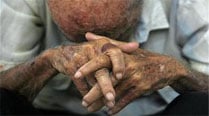
A new study states that the elderly can benefit from consuming four cups of coffee daily. The caffeine intake helps enhance heart functioning as well as help recover from heart attacks.
Drinking four cups of coffee daily might be a healthy addiction, especially in older adults, as it can enhance the function of heart cells as well as help recover from heart attacks, say researchers. The study, conducted on mice showed that coffee promotes movement of a regulatory protein into mitochondria — cell powerhouse — which then enhances their function to protect cardiovascular cells from damage. The protein called p27, an inhibitor of the cell cycle, was present in mitochondria in the major cell types of the heart.
In these cells, mitochondrial p27 promoted migration of endothelial cells, protected heart muscle cells from cell death and triggered the conversion of fibroblasts into cells containing contractile fibres — all crucial for repair of heart muscle after myocardial infarction or heart attack, and did so at a concentration that is reached in humans by drinking four cups of coffee, the researchers said.
“Our results indicate a new mode of action for caffeine, one that promotes protection and repair of heart muscle through the action of mitochondrial p27,” said Judith Haendeler from Heinrich-Heine-University’s Medical Faculty in Germany. “…enhancing mitochondrial p27 could serve as a potential therapeutic strategy not only in cardiovascular diseases but also in improving health span,” she added.
In the study, published in the journal PLOS Biology, the team found that caffeine was protective against heart damage in pre-diabetic, obese mice, and in aged mice. “These results should lead to better strategies for protecting heart muscle from damage, including consideration of coffee consumption or caffeine as an additional dietary factor in the elderly population,” Haendeler said.
-

For senior citizens, Akhilesh government offers free pilgrimage to six shrines
-

Mistreatment most common form of elderly abuse in India: Study
Source: Read Full Article